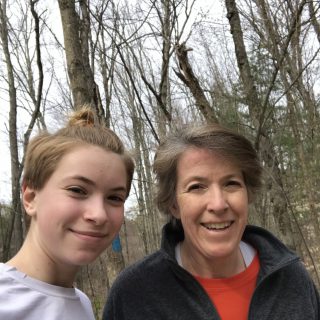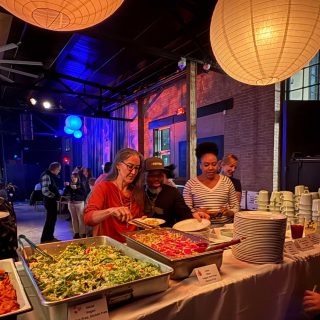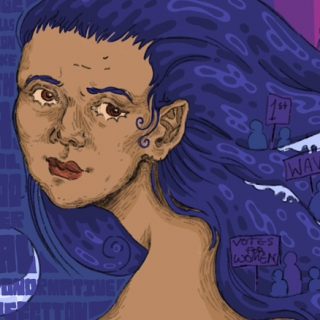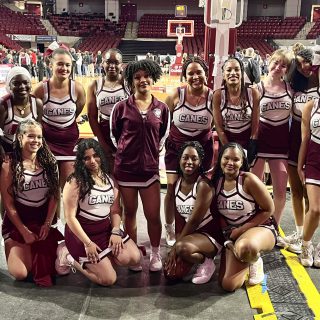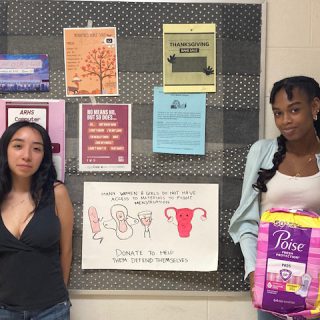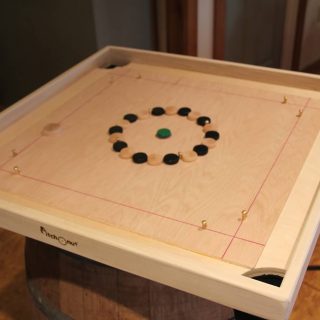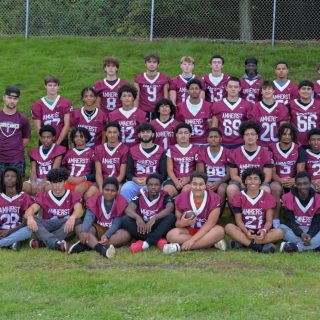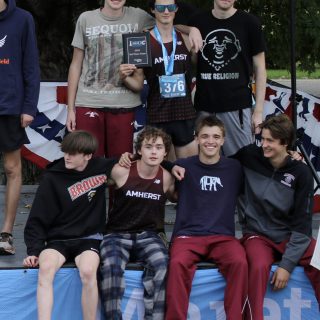Arab and Jewish peace group shares its vision with ARHS students
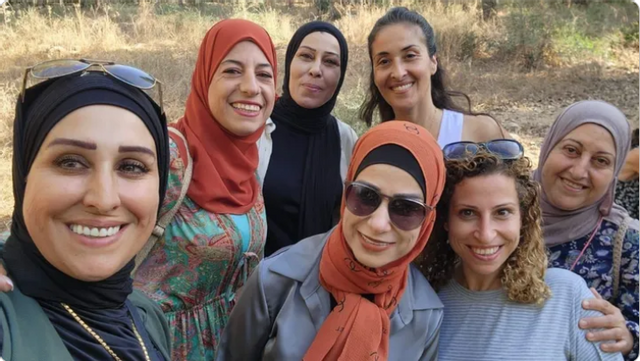
When Librarian Ella Stocker and Social Studies Department Head Simon Leutz, advisers to the Anti-Semitism Awareness Club (ASAP), heard about a group called Women of Vision that was traveling to New England to talk about healing and peace in Israel and Palestine, they reached out to members of their club to see if they would be interested in sponsoring the visitors at ARHS.
The students were enthusiastic about the possibility of sponsoring them, so Stocker and Leutz coordinated around logistics. ASAP club members and Leutz’s Holocaust class attended, while also opening up the invitation to members of the whole school community.
“We are only one of a very small number of schools they visited on this tour, which was mostly public performances,” said Stocker. “We are very lucky that we were able to welcome them.”
The event, held on September 24 in the library, involved students hearing from a group of four women–Marwa Abu Juila, Amira Abu Atta, Dorit Bat Shalom, and Shira Golan– two Arab citizens of Israel and two Jewish Israelis, who spoke about the current war and also their work for peace. Women of Vision titled their workshop: “Keep the Light On, Journey to Hope.”
Women of Vision’s mission includes “strengthening leadership that supports Arab and Jewish women in and outside of Israel to work together.” They note, “We refuse to be enemies. We hold together a vision of unity and of loving shared society. Women of Vision is looking for people to become part of this consciousness and expand the space for people moving together in the field beyond right and wrong.”
One of the women, Dorit, said that the group’s main goal was to teach people that Israeli-Palestinian coexistence is possible. “[We can] be human, [can] come together, and not allow war to create such a divide between people. The divide is the culprit of further destruction,” said Dorit.
At the beginning of the event, one of the Jewish Israeli women, Shira, began by performing a song in both Hebrew and Arabic, a song that has been very important to her for her entire life. “Ask for peace and pursue it,” sang Shira.
As an Arab Israeli, Marwa explained said she has experienced “ridicule both where I live and also where I am from.” Part of her work in her everyday life involves guiding teams of educators in schools in mixed Arab-Jewish cities and leading youth circles in “the art of healing and social engagement.”
“It’s hard to not be seen as the enemy in a time like this,” she added, noting that since she grew up in Israel, she is neither fully accepted by Palestinians living outside of Israel nor by Israeli Jews who assume she is antisemitic. Ultimately, she “only wants to unite and have peace among everybody no matter how people may differ.”
Throughout the event, a few activities took place, aimed at helping students redefine what they think is possible. Dorit asked everyone attending to draw what they think of when they hear the word “war” and to write down a few adjectives, too. Several people in the audience shared with the group, most of whom drew images representing grief, loss, and violence.
After sharing, Dorit asked everyone to “fix” their image and draw what they thought it would or could look like if there was peace. One person in particular at first had drawn a bare tree that was dying and then turned it into a blossoming tree that had deep stable roots in the ground.
They also conducted another activity where everyone split into groups of four, which involved listening to each other’s stories with depth and empathy and repeating back what one heard in the exercise.
The purpose of this is to help bring people together and make personal connections. “How do we move from isolation to togetherness?” asked Dorit. “We must hold a vision, see its potential, and move towards it.”
There is so much pain in Palestine and Israel, added Amira. “We hope to make a better tomorrow.”

